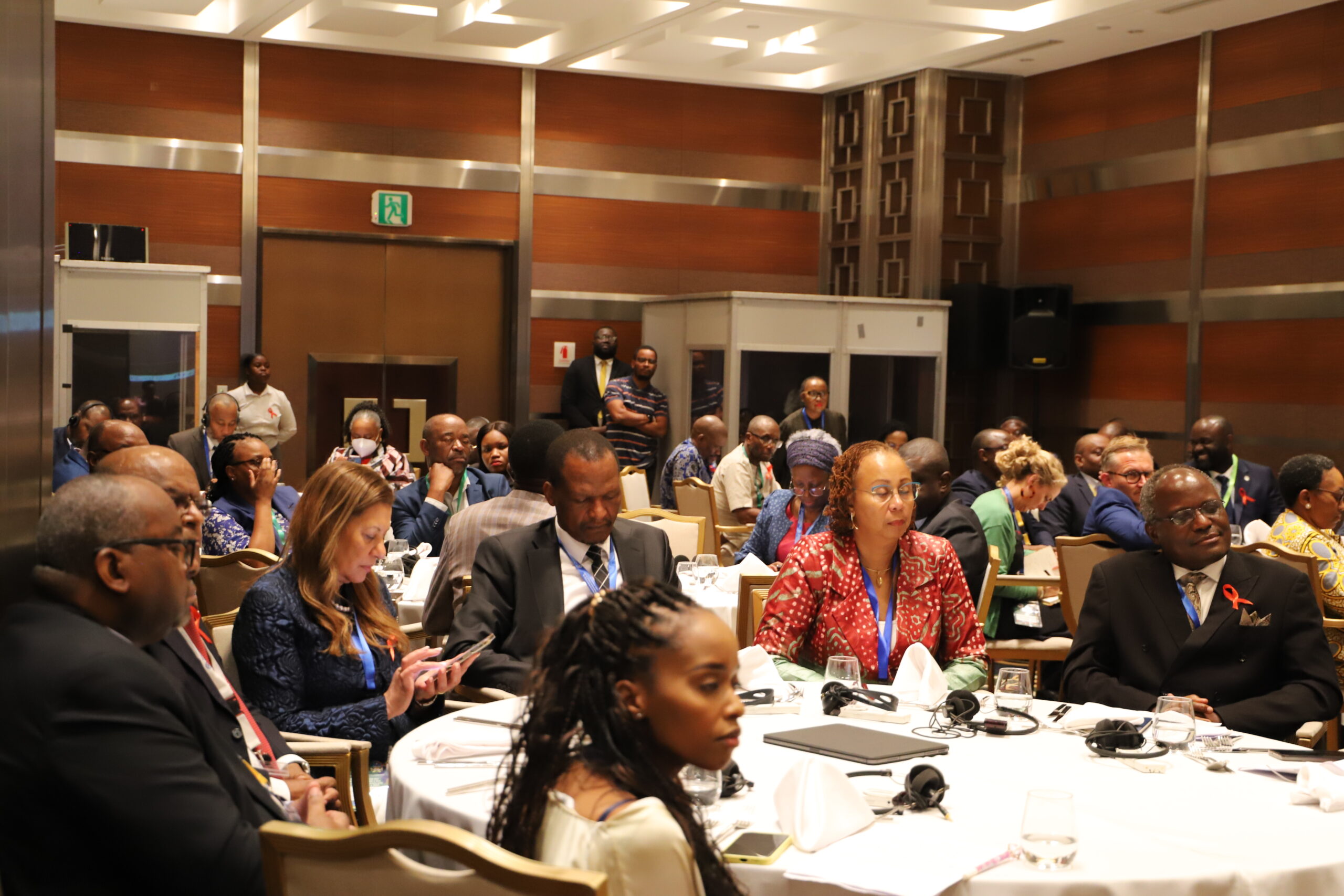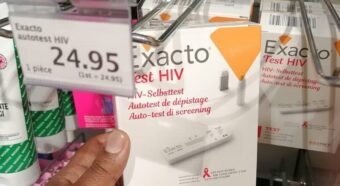Promoting Africa: African Constituency Bureau in Partnership with the Global Fund
- November 30, 2023
- African Constituency Bureau / The Global Fund
- By Armelle Nyobe
- Read in French

In opening the side event, African Voices, African Leadership: “A Dialogue to Advance the Partnership with the Global Fund” on the margins of the SADC health ministers meeting, Angola’s Minister of Health, H.E. Silvia Lutucuta, setting the scene for an hour of discussion, stressed the crucial need for health strategies that promote country ownership and are in line with national health agendas. The meeting was co-organised by the Global Fund , the African Constituency Bureau, the Angolan Ministry of Health and the SADC Secretariat whose aims were to (i) showcase and celebrate the partnership with African leaders, particularly for their advocacy throughout the 7th replenishment campaign, (ii) engage Ministers of Health from across Africa in a dialogue on their priorities for partnership with the Global Fund, in the lead up to the 8th replenishment campaign and (iii) to raise awareness of the value that the ACB brings to countries in ensuring that Global Fund governance decisions take into account their priorities and specificities, among others The meeting brought together 60 people, a group which included SADC ministers, permanent secretaries and their delegations, as well as SADC officials.
“Our meeting […] symbolizes a unity of purpose and a shared vision for the health future in Africa”, said Dr Charles Mwansambo, in his opening remarks.
Ownership and Strong Political Will
In her opening remarks, SADC Deputy Executive Secretary Angèle Makombo N’tumba underlined the region’s dynamic commitment. Ms N’tumba said that six countries in the sub-region had pledged a total funding of 23 million US dollars at the 7th replenishment of the Global Fund in New York, USA: the Democratic Republic of Congo, Eswatini, Malawi, South Africa, the United Republic of Tanzania and Zimbabwe. This sum represents almost 36% of the pledges made by the 18 African countries that have committed to the Fund.
On the other hand, still, on the subject of ownership, SADC is implementing the SADC Framework for Action for Sustainable Financing for Health and HIV, which was set up because “the East African Partner States’ economies are relatively small and are thus heavily donor dependent for health and HIV funding. While donor contributions are still significant globally, the expectation is that these will at best level-off (remain at the same nominal level in the future) or decrease as domestic economies grow”; this makes it possible to emancipate oneself from external financing. Furthermore, to promote the progress of programs set up in the region, the ministers stressed the importance of ensuring sustainable funding for health, particularly nutrition. They entrusted the secretariat with the responsibility of mobilising additional resources in support of the SADC Health Financing Centre. This Centre already supports a range of activities at the national level, including national dialogues on financing within member states. Tanzania, often cited as a shining example, represented by Dr. John Jingu, Permanent Secretary of the Ministry of Health, stressed the importance of mobilising national resources to complement international collaborations, including those with the Global Fund. He highlighted Tanzania’s strategic fight, such as the implementation of the Universal Health Insurance Bill, and spoke of the country’s achievements in public-private partnerships in healthcare.

Against a backdrop of dwindling resources, Linda Mafu of the Global Fund stressed the need to step up the national advocacy and resource mobilization team during the next replenishment of the Global Fund and emphasised the critical role of the next replenishment cycle in strengthening health systems and promoting community involvement.
On the same line with Linda Mafu, Dr Charles Mwansambo declared: “As we look toward the 8th replenishment in 2025, it is crucial that we stay true to the principle of country ownership, ensuring that our strategies and actions are aligned with the unique priorities and needs of African nations. This alignment is vital for creating sustainable health interventions that resonate with our people and address the specific challenges we face.”
An African Constituency Bureau for African Countries

The African Constituency Bureau (ACB) is the official representative of Africa within the Global Fund. Its vital role is to defend the continent’s interests and ensure that resources are used strategically to meet Africa’s most pressing health challenges. Angèle Makombo N’tumba acknowledged the ACB’s invaluable support in articulating Africa’s strategic priorities within the Global Fund ecosystem. In her view, over the years, the ACB has played an essential role in defending the continent’s interests and ensuring that resources respond effectively to the continent’s health challenges.
Dr Mwansambo ended by emphasizing the unwavering dedication of the ACB in advocating for African strategic priorities. “Our commitment lies in aligning our approaches with the needs and aspirations of our nations. Through collaborative efforts and a strong determination, we are combating diseases and paving the path towards improved health, well-being, and prosperity in our communities and countries”.
Armelle Nyobe


